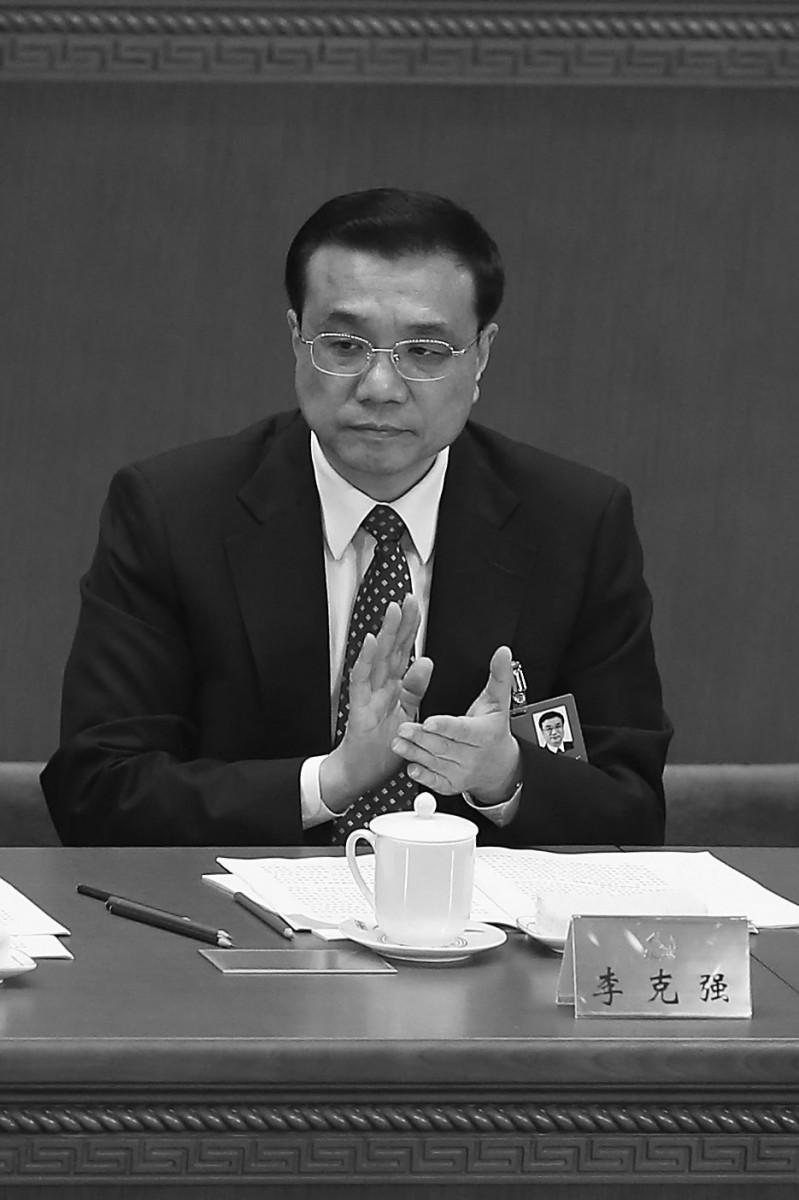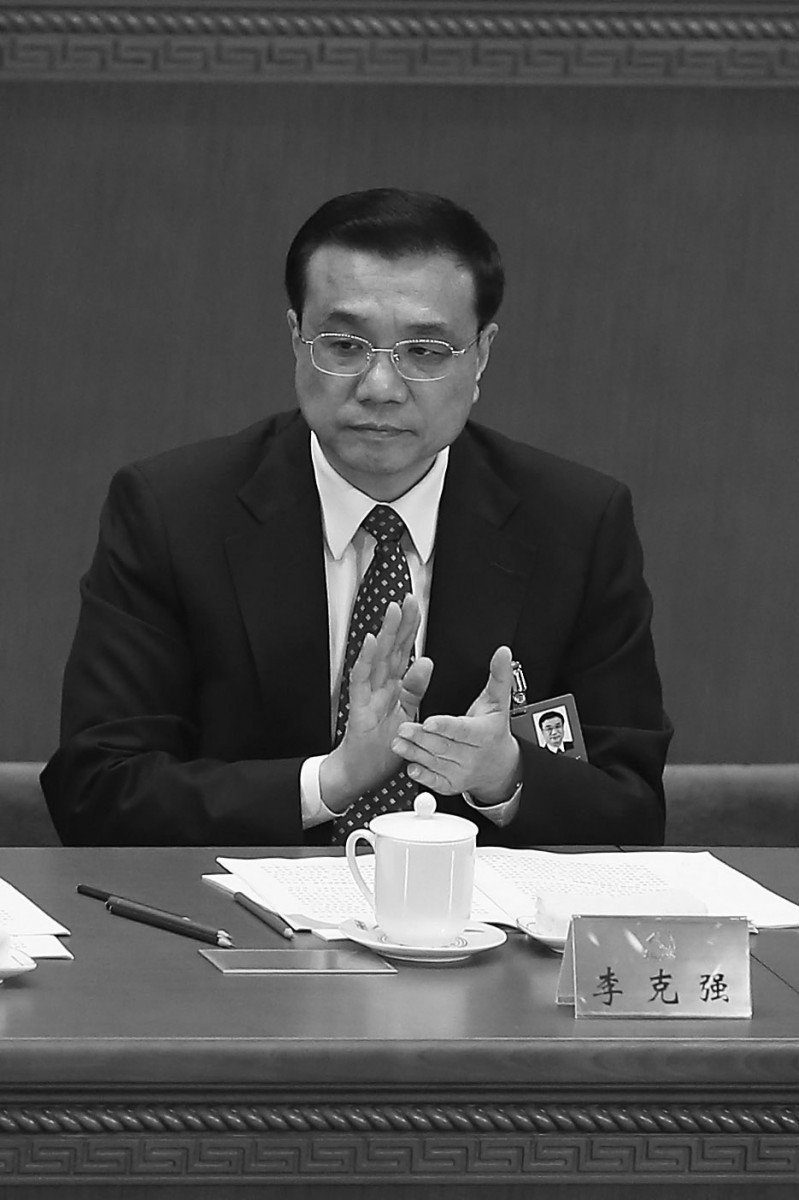Since the 2007 Party Congress, Li Keqiang has been groomed to succeed Premier Wen Jiabao. His career has benefited greatly from the patronage of General Secretary of the Communist Party of China Hu Jintao, who recruits supporters typically through the Communist Youth League.
Li, as premier, will administer the state bureaucracy and take the lead in crafting China’s economic policy. The position of premier is usually considered to be the No. 2 position in the government, and No. 3 in the Chinese communist apparatus.
The Chinese regime is comprised of the Party, the state, and the military, with the state and the military subordinate to the Party. Xi Jinping, as the presumptive paramount leader, will be the top leader of the Party and the state, while Hu Jintao will maintain control over the military for two more years before handing that over to Xi.
Hu Jintao is said to have favored Li Keqiang to succeed him as paramount leader, but accepted Xi Jinping as a compromise with the faction headed by former Party head Jiang Zemin, who objected to Li.
Li advanced his early career through the Communist Youth League (CYL), joining the upper echelons of the Party’s youth league in the 1980s, when Hu was in charge of the organization. After Hu became a member of the regime’s powerful ruling body, the Politburo Standing Committee (PSC) in 1992, Li was promoted to first secretary of the CYL in 1993. In 1997 Li became a member of Central Committee of CCP.
From 1998 to 2004, Li took the posts of governor of and deputy Party chief of China’s most heavily populated province, Henan, and became China’s youngest provincial governor. Later he served as Party secretary of Liaoning Province from 2004 to 2007, before ascending to vice premier in 2008.
Humble Origins
Li Keqiang was born in Dingyuan County, Anhui Province, July 1, 1955.
Li came from an official family. His father was a county-level cadre and later the director of the Intermediate Court of Bengbu City, the third largest city in Anhui Province. During the Cultural Revolution, Li was sent to nearby Fengyang County, one of the poorest counties in Anhui, to do manual labor in the countryside.
Unlike other top Party leaders who are mostly technocrats, Li Keqiang has a bachelor’s degree in law (1982) and a doctorate degree in economics (1994) from the prestigious Peking University School of Economics.
Of the nine members of the Politburo Standing Committee, he is the only one who has a good command of English. In fact, he helped translate The Due Process of Law by Lord Denning into Chinese when he was a law student in Peking University.
Low Key
Li is described by Taiwanese and Hong Kong’s media as a very low-key person, modest, and reserved.
Li was famous for doing his homework before going out on location inspections, according to the article, and he often asked local officials to show him the real data when they bragged about their performances.
A diplomatic cable leaked by WikiLeaks in 2011 said that when Li was the head of Liaoning Province in 2007, in a private talk with U.S. Ambassador Clark T. Randt, he described China’s GDP as “man-made,” “unreliable,” and “for reference only.”
Chinese media portrays Li as highly competent. By 2004, the year Li left, Henan had become China’s biggest producer of grain. Per capita GDP increased over 50 percent from 1998 to 2003. And remarkably, for the first time, in 2004 rural income increased 14 percent, a higher rate than urban areas, according to the book, “How China’s Leaders Think: The Inside Story of China’s Past, Current and Future Leaders.”
Li is also given credit for organizing the flow of Henan’s surplus agrarian labor force to the other provinces.
But his tenure in Henan was marred by a series of unfortunate events, including fires and the spread of HIV through contaminated blood. The latter “was hushed up for years,” says Jonathan Fenby, director of China Research for the market research firm Trusted Sources. Li earned a reputation for “bad luck,” according to the BBC.
Don’t expect Li to be as likeable or as reform-minded as Wen, says Fenby. “Li has made several speeches stressing the need for economic reform but he does not have the popular touch of ‘Grandpa Wen’ and lacks the present premier’s extensive administrative and Party experience dating back to the 1980s. … His decisiveness has been questioned by some sources.”
The Epoch Times publishes in 35 countries and in 19 languages. Subscribe to our e-newsletter.
Click www.ept.ms/ccp-crisis to read about the most recent developments in the ongoing crisis within the Chinese communist regime. In this special topic, we provide readers with the necessary context to understand the situation. Get the RSS feed. Who are the Major Players?






